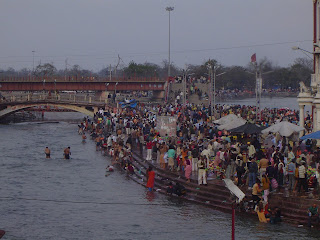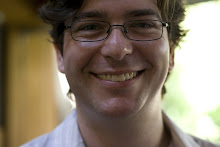Stuck in Rishikesh
So I am effectively stuck in Rishikesh due to another bout of DB. However, I suspect that this may be something worse. I've now been sick for 7 days and been able to get very little work done as a result.
Still having a good time, just not a particularly fun time if that makes sense.
I'm not really sure what to say here. I still really like Rishikesh, and am meeting some inspirational people. I've certainly been able to do a lot of writing. I've filled half a notebook already. That alone is very satisfying, as many of the assumptions that I had developed and brought with me have been either smashed or altered to fit more neatly with the reality I see here. What I find most interesting is the embarrassment I now feel towards my questionnaire, as many of those assumptions are built into and are glaring. There have been some puzzled looks and objections to terminology (that I have encouraged the respondents to write about). I have to be careful not to do too much talking when I hand them over to people lest my words become leading.
As a result of this I prefer recorded interviews. I don't doubt that in these cases my questions and the general conversation are even more leading than the questionnaires. However, I think that people tend to say things they might not commit to paper, and it gives me a chance to chase the interesting bits.
Sadly, I feel I haven't done justice to my time here. I would like to have had many more interviews and questionnaires back, but being sick has meant that some days I'm left with only 2-3 hours useful time in which to go out and work. Of course, not everyone you meet wants to be pestered by some pasty, bearded academic, and in particular many do not want to be recorded (the power of the voice remains it would seem). Nonetheless, I count my time here as invaluable. No amount of time spent in front of my computer or trawling through the library could have given me the insights into 'spiritual tourism' that I've been able to glean here.
At this stage I would like to leave here on Thursday or Friday, and head for Dharamsala. I don't think I will get time to see Varanasi, which is disappointing but not devastating. Given my state of health and the strain it has put on Abi I think I will also cut the trip short by a week or so. Basically, whenever I finish my research in Dharamsala I will head home.
Traveller's Tips:
Black tea with sugar is nice when your belly is not.
Always carry a good book, when your day consists of moving from your bed to the toilet you end up doing a lot of reading.
Find a friend! Emotionally, travelling alone is one of the hardest things you can do. When a fellow traveller sits down next to you say hi, ask where they're from - you'll make a friend which can be the difference between depressing loneliness and joy.
(special thanks to Abi for being the greatest wife, woman, and soul mate in the history of existence, and to Lachlan D. for being a mate when I needed one).
More: Full post










